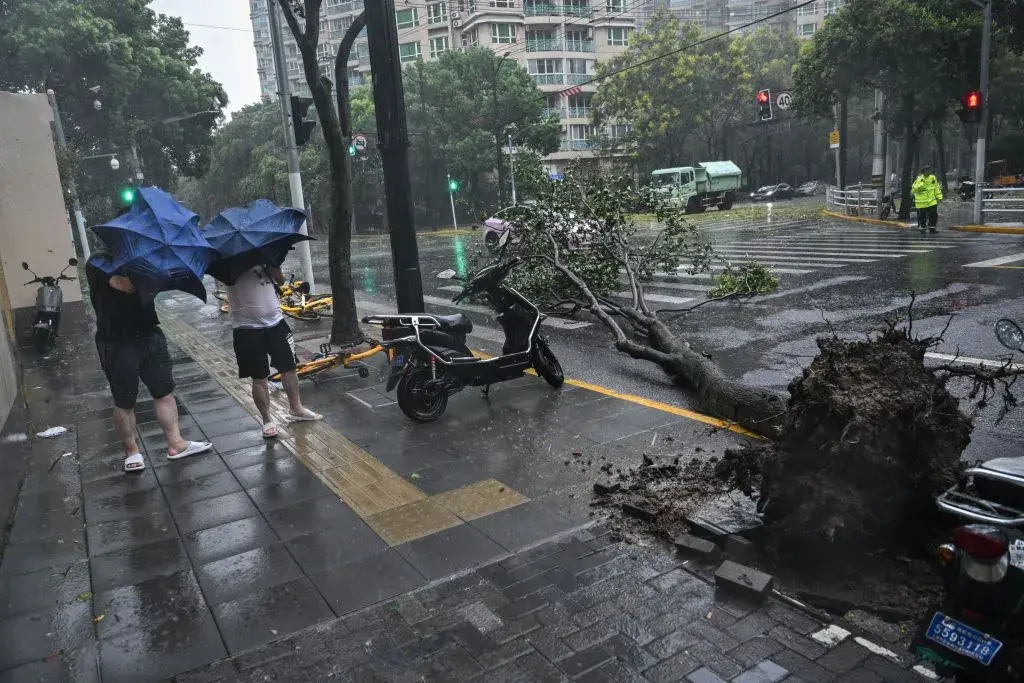A strong typhoon has touched down close to Shanghai, the Chinese financial center.
Typhoon Bebinca made landfall in the eastern coastline region of Shanghai at approximately 7:30 local time (23:30 GMT) on Monday, according to the China Meteorological Administration.
Thousands of residents in the Shanghai metropolitan area have been evacuated, while all flights at the city's two main airports have been grounded.
Typhoon Bebinca is the strongest storm to hit Shanghai in 75 years, according to Chinese state media.
It is rare for Shanghai to get a direct hit from strong typhoons, which tend to make landfall further south in China.
Authorities have issued a red alert for Bebinca, the highest level, as wind speeds of up to 151km/h (94 mph) were recorded at the typhoon's eye.
Train services have been cancelled, highways closed and Shanghai’s 25 million residents have been advised to stay at home ahead of the storm’s arrival. A 40km/h (25mph) speed limit was imposed on roads inside the city.
As a precaution, more than 400,000 people had been relocated by Sunday evening, according to the Shanghai flood control headquarters.
A further 9,000 people were evacuated from the Chongming District, an island at the mouth of the Yangtze River, city authorities said.
The city's flood control headquarters also said they had received dozens of reports of incidents related to the typhoon - mostly fallen trees and billboards.
Resorts in Shanghai, including Shanghai Disney Resort, Jinjiang Amusement Park and Shanghai Wild Animal Park, have been temporarily closed and many ferries halted.
Another typhoon, Yagi, killed at least four people and injured 95 when it passed through China's southern Hainan island this month, according to national weather authorities.
Yagi also caused severe flooding in Southeast Asia, killing hundreds of people in Vietnam and Myanmar.
Typhoon Bebinca has also passed through Japan and the central and southern Philippines, where falling trees killed six people.
Chinese state media said Bebinca was expected to move north-west, causing heavy rain and high winds in Jiangsu, Zhejiang and Anhui provinces.








.svg)




